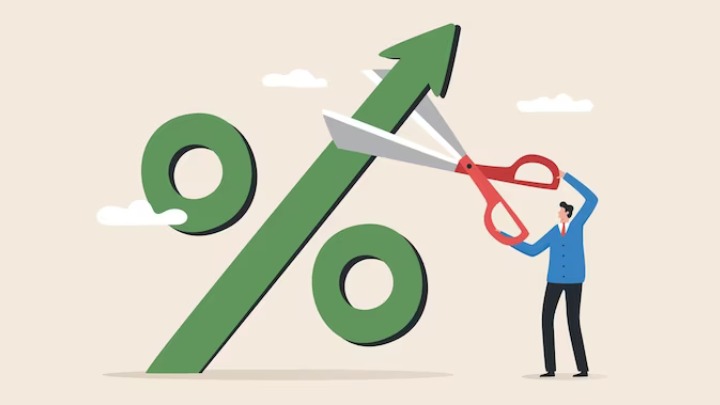
In a simple language, a credit score is like a report card for professionals. It shows how well you manage your money and repay your debts. Banks and lenders use this score to decide if they should give you a loan or not. The higher your credit score, the better your chances of approval. This blog article is an in depth guide regarding how credit scores impact personal loan approval with various case studies.
Obtaining a personal loan and repaying it promptly can enhance your credit score. Your payment history is the largest portion of your credit score (35 percent for FICO and VantageScore), and lenders highly favor consistent, on-time payments.
For example, let’s say Sally and Timmy want to borrow money from the bank. Sally has a stellar credit score of 720, while Timmy’s score is only 600. Even if they both have similar income and expenses, Sally has a higher chance of getting approved for a loan because her credit score reflects responsible money management. As per Finance Today survey of FY 21-22, it was found that people with excellent credit scores had a 90% approval rate for personal loans, while those with poor scores had only a 10% approval rate.
Personal loans also contribute to your credit mix – the diversity of your accounts, including revolving and installment debts – which makes up 10 percent of your credit score.
1. Credit score
Lenders such as MaxLend use credit scores to assess your likelihood of repaying a loan and making timely payments. Lenders use credit scores to assess your likelihood of repaying a loan and making timely payments. It ranges from 300 to 850, with higher scores being better. The score is based on information from your credit report, including your payment history, types of accounts, amount of debt, length of credit, and how recently you’ve opened new accounts.
A lender’s credit score is important in deciding whether to approve your loan application and what terms to offer you. It also helps lenders calculate the interest you will pay on your debt. Your credit score can be obtained from various consumer reporting agencies. However, the credit scores you receive may vary from one another because the scoring models used by each CRA are different.
Credit scores may also differ by industry, as some lenders have criteria for granting loans and determining creditworthiness. In addition to getting approved for a personal loan, credit scores can have other impacts on our financial lives. For instance, a good credit score can help us secure lower interest rates on credit cards and mortgages. On the other hand, landlords and employers sometimes check credit scores to assess our reliability and responsibility. A poor credit score could potentially lead to a rental application being denied or a job offer being rescinded.
2. Interest rate
When someone applies for a personal loan, lenders look at their credit scores to decide if they should approve the loan and what interest rate to charge. It is an unavoidable part of applying for a personal loan, there are many choices you can make to improve your credit score and help you qualify for better rates. The most important factor in FICO and VantageScore is payment history, which accounts for 35 percent of your score. Consistent, on-time payments will help your score rise. A personal loan can also help you diversify your credit mix, which makes up 10 percent of your score.
A personal loan can be a helpful way to cover unexpected expenses, consolidate debt, or pay off high-interest credit cards. However, like any new line of credit, a personal loan can lower your credit score if you miss payments. A formal application for a personal loan will trigger a hard credit inquiry, which can knock up to five points off your score. Using pre qualification, which allows lenders to run a soft credit check, can reduce the impact on your scores.

So, credit scores can impact personal loan approval and the interest rates that are charged. It’s important to work on building a good credit score to have a better chance of getting approved for loans with lower interest rates.
3. Processing fees
The processing fees are charges that you need to pay additionally when applying for a personal loans. These fees cover the administrative costs associated with loan processing, such as verifying information, legal procedure and conducting credit checks.
Lenders consider credit scores to assess the risk associated with lending money. If your credit score is high, it shows that you have a good track record of repaying debts, making you more likely to be approved for a loan. However, if your credit score is low, lenders may view you as a higher risk and may charge higher processing fees or even reject your loan application. This is considered as a hard inquiry and can temporarily cause your credit score to dip slightly. However, several inquiries in a short period can suggest risk to lenders and lower your credit score. MaxLend loans can improve your credit score if you make on-time payments and reduce your debt-to-income ratio.
It can also help you build your credit mix, one of the six factors determining your FICO or VantageScore credit score. Additionally, credit NO business loans, only personal loans, can be used to replace revolving debt with installment debt, which may positively impact your credit score.
4. Documentation
Regarding documentation, most lenders will require certain documents to be submitted to process your loan application. Some of these include proof of income, credit history, and balance sheets. Depending on your lender, they may also request a letter of reference or employment verification. As with any debt, a personal loan can negatively affect your credit score if you miss payments or cannot repay it. Most of your credit score is based on your payment history. However, a personal loan paid on time and managed properly can help improve your credit score.

To get the best possible rates, try applying with multiple lenders within 14- to 30-day days. This will allow the credit agencies to treat these inquiries as a single inquiry rather than a series that can impact your credit scores and creditworthiness.
Conclusion
So, it’s clear that how credit scores impact personal loan approval. Taking care of your credit score by paying bills on time, keeping credit card balances low, and avoiding too many new debts can greatly increase your chances of getting approved for that much-needed loan.
